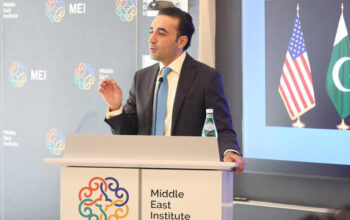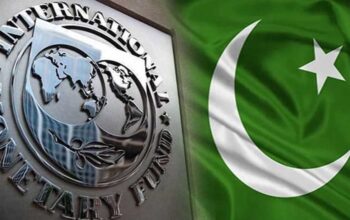By Staff Reporter
ISLAMABAD: Pakistan’s large-scale manufacturing (LSM) sector contracted 21.07% in April, its tenth straight month of decline, data from the Pakistan Bureau of Statistics (PBS) showed on Thursday.
The fall in output affected 20 of the 22 sectors, with only garments and football showing a rise. Textiles, food, chemicals, automobiles, cement and iron and steel were among the sectors that saw a drop in production.
The LSM sector accounts for about a quarter of Pakistan’s gross domestic product (GDP) and its slump poses a challenge for the economy, which faces high inflation, a widening current account deficit and a weakening currency.
Economists blame the downturn on economic instability and political unrest in the country. They warn that it could lead to job losses, a larger trade gap and lower growth.
They say inconsistent policies, bureaucratic hurdles and a lack of long-term planning have discouraged investment in the industry. High energy costs, rupee devaluation and expensive bank financing have also hurt the sector.
Pakistan’s manufacturing output has been falling since May 2023, with a 1.86% contraction in July, the start of the fiscal year. The decline worsened in March 2023, when LSM growth was -25%, and further dipped to -21.07% in April.
On a year-on-year basis, various sectors saw steep declines in output in April 2023 compared to the same month last year. Textiles fell 33.3%, pharmaceuticals 32%, food 5.9%, non-metallic minerals 24.5%, iron and steel 10.2%, chemicals 7.9%, machinery and equipment 43.3%, automobiles 75.5%, cement 23.8% and sugar 92.5%. Cotton yarn production dropped 29.9%, cotton cloth 17.5%, petroleum products 20.4% and cement production 23.8%.
Copyright © 2021 Independent Pakistan | All rights reserved




